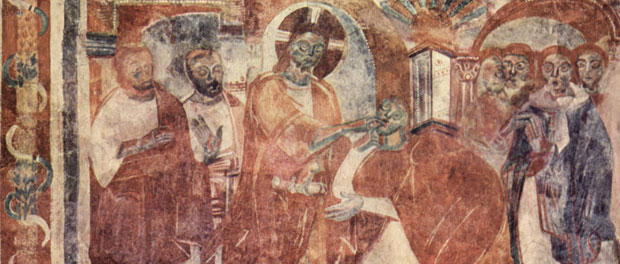 Nearly 25 years ago, the Jesuit scholar of language Walter J. Ong wrote a seminal work on the difference between spoken and written language, and how the use of these different forms of communication impacted human cultures of antiquity and the modern age.
Nearly 25 years ago, the Jesuit scholar of language Walter J. Ong wrote a seminal work on the difference between spoken and written language, and how the use of these different forms of communication impacted human cultures of antiquity and the modern age.
He used the term primary orality to talk about cultures that only know communication through spoken words and who have no written language. Secondary orality, in contrast, refers to cultures that use “essentially a more deliberate and self-conscious orality, based permanently on the use of writing and print.”
Secondary orality allows us to bend time by having conversations (as it were) with those who are long dead, and to leave traces of ourselves for future generations. It has changed the way we think of speaking and listening; of encountering other people; of considering history and the future.
Not long ago, while reading the Chronicles of Narnia with my kids, I was struck by the way that the main characters, children in wartime London, are challenged by the new social norms they encounter when they enter a new world characterized by primary orality. They learn that there is a high priority on oral storytelling and that truly listening to another’s story means doing nothing but paying rapt attention to the way a storyteller weaves words and phrases into a narrative tapestry. The hearing of a story is far from merely conveying information; it is about being invited into another person’s imagination of the world and learning how he or she has come to live.
Our age might be described as one in which there is developing a kind of tertiary orality, by which I mean an approach to communication that is twice removed from storytelling. Those who rely on text messaging or social media are, in my observation, far removed from encountering persons in their depth and mystery. I wonder sometimes whether our naïve use of tertiary orality might be implicated in the dismal state of our civil discourse. It’s not that we talk past one another; it’s that we no longer talk at all, using eyes and body language, passionate persuasion, and loving challenge. We ASSERT IN ALL CAPS or issue one-line snark within our online echo chambers that nurture confirmation bias, seldom seeking out intelligent conversation with those who differ from us.
Perhaps in the coming days, I might practice a spirituality of orality by using my listening and speaking skills as gifts. How might I come to know another person through attending to his or her words? How might I offer words as graced participation in the eternal Logos of God? How might I seek out those whose orality has been compromised by illness, disability, or marginalization? How might my words become praise of the eternal God?
“O Lord, open my lips,
And my mouth shall proclaim your praise.” —Psalm 51:15
Image of Jesus healing a deaf-mute man by Meister von Müstair, public domain via Wikimedia Commons.
Today in 31 Days with St. Ignatius, enjoy The Rich Young Man and the Look of Love, an imaginative story by Loretta Pehanich.
